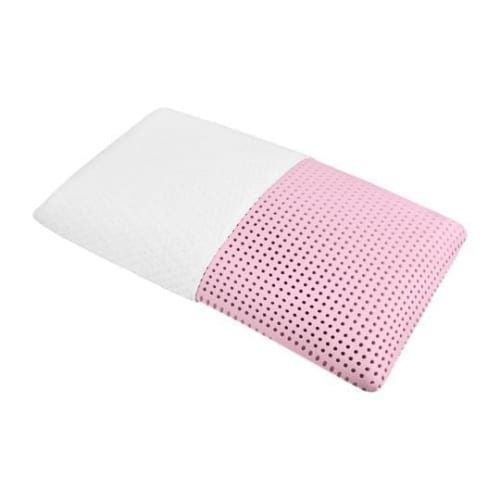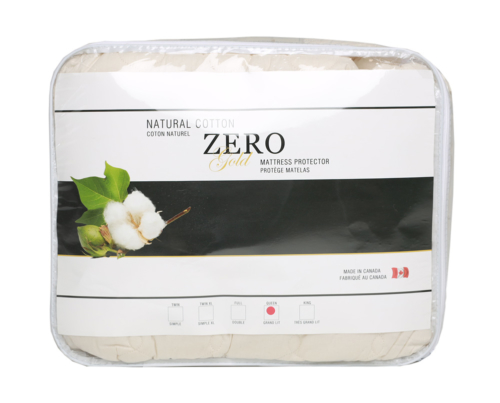
Is Your Mattress Crying Out for a Replacement? Top Signs You Need a New One
Are you waking up with a stiff neck, lower back pain, or simply feeling as though you’ve wrestled with a grizzly bear all night? If yes, your innocent looking mattress could be the culprit, subtly crying out for a replacement. More than just bedding, the right mattress can be the key to achieving deeper, more restorative sleep, powering you for the day ahead. The question remains: how can we interpret our mattress’ inaudible pleas? Luckily, this article compiles all the top signs that flag an urgent need for a fresh, cozy mattress. Not only will you improve sleep quality, but also prevent long-term health issues associated with old, unsuitable mattresses. So, let’s uncover the secret language of mattresses and decode when it’s time to say goodbye to your nighttime companion.
The Life Expectancy of a Mattress
The lifespan of a mattress can range from 7 to 10 years, but it can also depend on the type and quality of the mattress. Innerspring mattresses generally last about 7-8 years, while latex or memory foam mattresses can last up to 10 years or more if properly maintained. Of course, these are just averages and the actual lifespan may vary based on usage, care, and individual comfort preferences.
Just like us, mattresses age too. And just like us, their performance declines over time, affecting their ability to provide the necessary support and comfort. Even the highest quality mattresses are not exempt from the ravages of time. Over the years, they lose their shape, their springs lose their springiness and memory foam forgets its original form. So, even if your mattress came with a 20-year warranty, it doesn’t mean it will maintain its comfort and support for that long.
So, how can you determine if it’s time to replace your mattress? The best way to decide is by listening to your body and observing the state of your mattress. If your mattress is showing signs of wear and tear and you’re not sleeping as well as you used to, it may be time to consider a replacement.
How to Tell if Your Mattress Needs Replacing
Just as you would monitor your car for signs of trouble, the same vigilance should be applied to your mattress. The first sign that your mattress might need replacing is if you’re not getting a good night’s sleep. If you’re tossing and turning, waking up tired, or feeling pain when you wake up, these could all be signs that your mattress is no longer providing the support and comfort that you need.
Another sign is if the mattress is visibly sagging or has noticeable lumps. Over time, the materials inside the mattress can break down, causing it to lose its shape. If you can see a sag or lump in your mattress, it’s a clear sign that it’s time for a replacement. Similarly, if your mattress is making noises when you move or change positions, it might be a sign that the springs or other internal components are worn out.
Your sleep environment can also indicate if it’s time for a new mattress. If you wake up with allergy symptoms like sneezing, a runny nose, or itchy eyes, it could be due to dust mites or mold in your old mattress. Additionally, if you feel uncomfortable temperature-wise while sleeping, it might be because your mattress is not regulating heat effectively.
Common Signs Your Mattress Needs Replacement
In addition to the signs mentioned above, there are a few more indicators that it might be time to replace your mattress. One such sign is if you sleep better in other beds, such as a hotel bed or a friend’s guest bed. If you find yourself longing for the comfort of a bed other than your own, it’s a clear sign that your mattress isn’t doing its job.
Another common sign is if the mattress is no longer comfortable. Comfort is subjective and can change as we age or if our health conditions change. What might have been the perfect mattress a few years ago might not be the right fit for you now. If you find yourself frequently waking up with aches and pains, or if you’re not looking forward to going to bed because of the discomfort, these are signs that you might need a new mattress.
Finally, if your mattress is over 7 years old, it’s probably time to start thinking about a replacement. While some high-quality mattresses might last longer, the average lifespan of a mattress is 7-10 years. If you can’t remember when you bought your mattress or if you know it’s been more than a decade, it’s time to start shopping for a new one.
Health Implications of Using an Old Mattress
Using an old, worn-out mattress can have serious implications for your health. One of the most common health issues associated with old mattresses is back and neck pain. When a mattress loses its ability to provide proper support, it can lead to poor sleep posture and strain your back and neck muscles. Over time, this can result in chronic pain.
Sleep quality is another major concern. An old or uncomfortable mattress can prevent you from getting deep, restorative sleep. This can lead to fatigue, difficulty concentrating, and can even weaken your immune system. Poor sleep has also been linked to a number of health conditions, including heart disease, diabetes, and obesity.
Finally, old mattresses can be a breeding ground for allergens like dust mites and mold, which can trigger allergies and asthma. A study by the Asthma and Allergy Foundation of America found that old mattresses can have anywhere from 100,000 to 10 million dust mites inside. These tiny creatures can cause a range of health problems from sneezing and runny nose to difficulty breathing.
Cost Considerations for Replacing Your Mattress
Replacing your mattress is an investment in your health and well-being, but it’s also a significant financial decision. The cost of a new mattress can range from a few hundred to several thousand dollars, depending on the brand, size, and type of mattress. It’s important to consider your budget, but remember that a good mattress is a long-term investment.
When considering the cost of a new mattress, keep in mind that you’re not just buying a piece of furniture. You’re investing in something that you’ll spend a third of your life on and that can significantly impact your health and quality of life. While it might be tempting to opt for the cheapest option, it’s worth investing in a mattress that offers the right support and comfort for your needs.
Don’t forget to factor in the cost of a new bed frame or foundation if necessary. Some mattresses require a specific type of foundation, so be sure to check the manufacturer’s recommendations. And remember, while a higher price tag often indicates better quality, it doesn’t guarantee it. Do your research, read reviews, and test out mattresses in-store if possible before making a decision.
How to Choose the Right Mattress for You
Choosing the right mattress is a personal decision that should be based on your individual needs and preferences. There are several factors to consider, including your preferred sleep position, body type, and any health conditions you might have.
In terms of mattress type, there are several options available, including innerspring, memory foam, latex, and hybrid mattresses. Each type has its own advantages and disadvantages, so it’s important to research each type and consider your own needs before making a decision.
Firmness is another important factor. The right firmness level for you will depend on your sleep position and body weight. Side sleepers generally need a softer mattress that can conform to their body’s curves, while stomach and back sleepers need a firmer mattress for proper spinal alignment.
Lastly, consider the size of the mattress. If you share your bed with a partner, you might need a bigger size to ensure you both have enough space. Keep in mind that a bigger mattress will also require a bigger bed frame and bedding, which can add to the cost.
Conclusion
Your mattress plays a crucial role in your overall health and well-being, and it’s important to recognize when it’s time for a replacement. From poor sleep and discomfort to allergies and back pain, an old or unsuitable mattress can lead to a range of health issues. Fortunately, recognizing the signs of a worn-out mattress and understanding the options available in the market today can help you make an informed decision when it’s time to upgrade. Remember, investing in a good mattress is investing in your health and happiness. Don’t wait until your mattress is crying out for a replacement—treat yourself to the gift of good sleep today.






